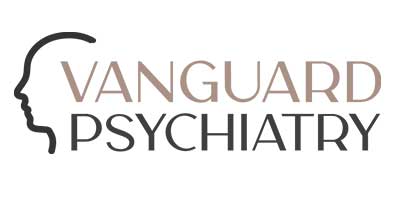Obsessive-Compulsive Disorders
Assessment and Treatment of Obsessive-Compulsive and Related Disorders
Understanding Obsessive-Compulsive Disorders (OCD) begins with defining terms. Obsessions are recurrent thoughts, urges, or images that are unwanted and interfere with everyday life. Compulsions are repetitive behaviors that a person feels driven to perform in response to their obsessive thoughts.
A key component to treatment is understanding where these thoughts are coming from and what causes them to persist. Common OCD problems are related to fears that result in repetitive checking behaviors. A person may have obsessions, compulsions, or both.
Other OCD related disorders include:
- Hoarding Disorder
- Body Dysmorphia
- Body-focused behavior, such as hair pulling or skin picking.
We Provide An Evidence-Based Approach To Treatment
How do these problems interfere with life? First, you find yourself having recurrent thoughts and find it difficult to ignore or suppress these thoughts. In addition, you may perform repetitive behaviors such as hand washing, ordering things, checking, or mental acts such as counting or repeating words silently in response to the obsessive thoughts. You may have a rigid system of trying to resolve these stressful thoughts. OCD thoughts/behaviors are time-consuming and take up an hour or more per day.
Hoarding disorder is a persistent difficulty discarding or parting with possessions, regardless of their actual value. This disorder interferes with a person’s quality of life, causing excessive clutter that takes up living space, making it difficult to function. As a result, people with this disorder often experience social, occupational, and relationship problems.
Body Dysmorphic Disorder occurs when one is preoccupied with their appearance and focused on their perceived defects. These thoughts result in repetitive checking, comparing, and mental activity causing distress. The range of ways the person may try to improve their perceived problem includes excessive grooming, hair pulling, excessive make-up, or surgical procedures to address their perceived flaws. This disorder is often co-occurring with depression due to persistent life dissatisfaction.
Vanguard Psychiatry is here to help with the issues contributing to your distress. When these problems arise in children, they are typically observable by attentive family members who can help them get the treatment they need. In contrast, adults usually get help due to the social/relationship problems their OCD symptoms are causing. Meeting with a mental health practitioner can help identify and resolve these issues.
Vanguard Psychiatry provides an evidence-based approach to helping OCD and Related Disorders by first providing an extensive intake appointment to learn what thoughts and behaviors are occurring. The intake will help facilitate an understanding of the client’s home life, work, friends, activities, and history. A patient may want to bring another person to the intake appointment to help with details and get a valuable objective perspective on the issue(s). After intake, Dr. Defilippo will collaborate with the patient to determine their goals and resources. Patients are encouraged to make a list of issues to work on because OCD often impacts various areas of life.
How Can Vanguard Psychiatry Help?
Take the example of Annie, a 29-year-old female, with a 4-month-old baby girl (Maggie). The Annie has been married for six years, and the couple was excited during the pregnancy. After Maggie was born, Annie’s husband became worried about her because she was having upsetting thoughts and fears that she might violently harm Maggie. She had thoughts of pushing her stroller into traffic, poisoning her, or drowning her. Because of these intrusive thoughts, Annie avoided spending time with Maggie, did not want to give her baths, and refrained from being alone with her. She arranged for her mother to stay with them because the problem had become worse over the past month.
How can Vanguard Psychiatry help Annie?
During the intake appointment, Dr Defilippo discovered the obsessive thoughts of harming her baby were cued from the environment. For example, when a car drove by, she worried that Maggie would be hit by a car; when she was in the kitchen preparing food, she worried she would poison the baby. The doctor also found that she was constantly checking little Maggie for wounds thinking she may have injured her without realizing it. Annie had good insight into the senselessness of her thoughts, saying she understood these were not realistic. Dr. Defilippo determined that he could treat Annie with therapy and medication that may help resolve her symptoms.
Working with a trained psychiatric professional can help demystify the symptoms you are experiencing and help you find solutions. At Vanguard Psychiatry, we understand that mental health treatment is not a “one size fits all” approach and each person’s experience is unique. Together with Dr Defilippo you will explore solutions that can provide relief and help you enjoy life again.




